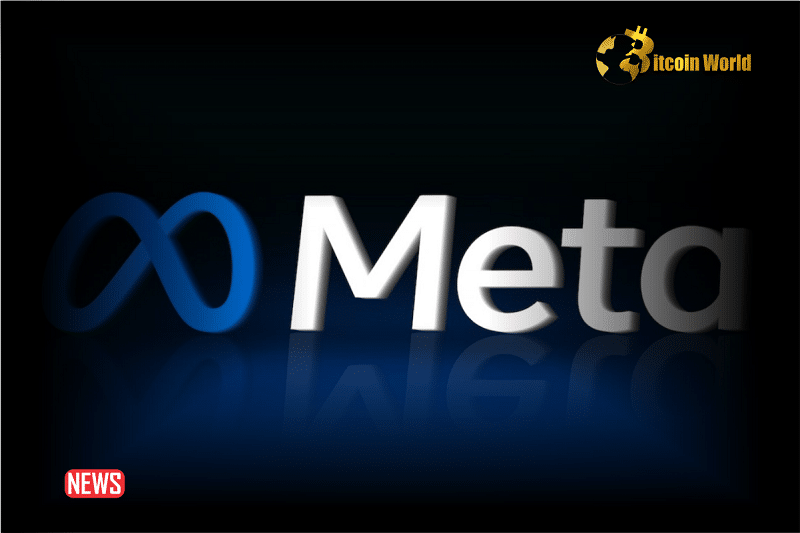In a significant shift in its artificial intelligence strategy, tech giant Meta, the parent company of Facebook, Instagram, and WhatsApp, has reportedly dismantled its dedicated Responsible AI division. This move, as reported by The Information, sees team members transitioning into Meta’s burgeoning generative AI product and infrastructure teams. What does this restructuring signal about Meta’s AI priorities, and how might it impact the future of responsible AI development in the fast-evolving tech landscape?
Why the Restructuring? Efficiency or Shifting Focus?
The timing of this organizational change is noteworthy. Meta is currently undergoing what CEO Mark Zuckerberg has termed a “year of efficiency.” This initiative has already involved substantial layoffs, team mergers, and resource reallocation across the company. The disbandment of the Responsible AI team appears to be another facet of this broader efficiency drive.
However, it also coincides with the explosive growth of generative AI. Think about the buzz around tools like ChatGPT and DALL-E – these are products of generative AI, capable of creating human-like text, images, and more. Companies across the tech spectrum are racing to capitalize on this technology. Meta, initially perceived as playing catch-up in this domain, established its generative AI team in February, signaling a clear intent to compete.
The shift raises some critical questions:
- Is Responsible AI taking a backseat to product development? Moving experts from a team focused on AI ethics and safety into product-focused roles could suggest a prioritization of rapid innovation over cautious, responsible deployment.
- Efficiency vs. Expertise? While the move is framed under the umbrella of efficiency, dispersing a specialized team could dilute expertise in responsible AI across the organization.
- The AI Race Heats Up: The pressure to compete in the generative AI space is immense. Could this restructuring be a strategic maneuver to accelerate product development and deployment, even if it means re-allocating resources from dedicated responsibility teams?
Generative AI in the Spotlight: What is Meta Building?
Meta’s generative AI team is tasked with creating products that can generate content – language and images – that closely resemble human-created outputs. This is a rapidly evolving field with immense potential, and Meta is actively developing its capabilities. Recently, Meta unveiled two new AI-powered generative models:
- Emu Video: Building upon Meta’s existing Emu model, Emu Video can generate video clips from text and image prompts. Imagine describing a scene and having AI create a short video based on your description – that’s the power of Emu Video.
- Emu Edit: Focusing on image manipulation, Emu Edit promises enhanced precision in image editing tasks. This could revolutionize how we edit and interact with images digitally.
Read Also: Meta Launches Emu Video and Emu Edit AI Models For Video and Images
The Importance of Responsible AI: Is it Still a Priority?
The timing of this restructuring is particularly sensitive given the increasing global focus on AI safety and ethics. Regulators and industry bodies are paying close attention to the potential harms of AI, ranging from bias and misinformation to job displacement and privacy concerns.
Recognizing this growing need for responsible AI development, major players like Anthropic, Google, Microsoft, and OpenAI have joined forces to form an industry group dedicated to establishing AI safety standards. This collective effort underscores the industry-wide recognition of the importance of ethical AI practices.
According to reports, Meta emphasizes that despite the structural change, their commitment to responsible AI remains steadfast. The company states that while the dedicated division is being disbanded, the principles and practices of responsible AI will be integrated into all AI development and deployment processes. Team members, while moving to new teams, will continue to champion responsible AI within their new roles.
Navigating the Future of AI: Balancing Innovation and Responsibility
Meta’s decision to disband its Responsible AI division is a complex development. On one hand, integrating responsible AI considerations directly into product development teams could be seen as a positive step towards embedding ethics into the core of AI innovation. On the other hand, dismantling a specialized team raises concerns about whether responsible AI will receive the dedicated attention it requires amidst the intense pressure to deliver groundbreaking generative AI products.
The key takeaway is that the conversation around responsible AI is far from over. As AI technology becomes increasingly powerful and integrated into our lives, ensuring its ethical and safe development is paramount. Whether Meta’s new approach will effectively balance rapid innovation with responsible AI practices remains to be seen. The tech world, regulators, and the public will be watching closely.
Ultimately, the future of AI hinges on the ability of companies like Meta to not only push the boundaries of what’s technologically possible but also to do so in a way that is ethical, responsible, and beneficial for all of society.
Disclaimer: The information provided is not trading advice, Bitcoinworld.co.in holds no liability for any investments made based on the information provided on this page. We strongly recommend independent research and/or consultation with a qualified professional before making any investment decisions.




